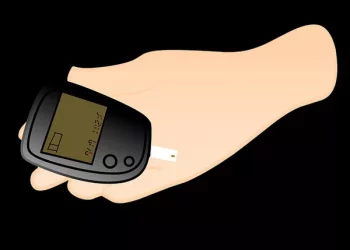Managing blood sugar levels is a crucial part of living with diabetes. For individuals with diabetes, monitoring blood sugar levels throughout the day, including before bedtime, is essential to ensure that glucose levels stay within a safe range. Blood sugar fluctuations that occur during sleep can significantly affect the way a person feels the next day and can even lead to complications if not properly managed. Therefore, knowing what your blood sugar should be before bed and how to control it is an important step toward effective diabetes management.
This article will provide an in-depth explanation of the ideal blood sugar levels before bed, the factors that influence nighttime blood sugar levels, and strategies for maintaining healthy blood sugar at night. Understanding the science behind blood sugar fluctuations overnight, how to interpret your pre-bedtime readings, and what steps to take if your blood sugar is too high or low will empower you to manage your condition more effectively.
The Importance of Monitoring Blood Sugar Levels Before Bed
Blood sugar levels fluctuate naturally throughout the day due to various factors such as food intake, physical activity, stress, medication, and more. However, maintaining stable blood sugar levels overnight is particularly important for several reasons. If blood sugar levels are too high or too low before bed, it can lead to a series of issues during the night, including:
Hypoglycemia (low blood sugar): If blood sugar drops too low during sleep, it can lead to hypoglycemia, which may cause symptoms such as dizziness, confusion, shaking, sweating, and, in severe cases, loss of consciousness.
Hyperglycemia (high blood sugar): Elevated blood sugar levels before bed can result in hyperglycemia, leading to symptoms such as increased thirst, frequent urination, and fatigue. Over time, consistent high blood sugar levels can increase the risk of diabetes complications like nerve damage, kidney disease, and cardiovascular problems.
For people with diabetes, monitoring and maintaining a healthy blood sugar level before bed is vital not only for preventing these issues but also for ensuring a good night’s sleep and better overall control of the condition.
Ideal Blood Sugar Levels Before Bed
The ideal blood sugar level before bedtime can vary depending on individual factors such as age, overall health, the type of diabetes, and the treatment plan being followed. However, there are general guidelines that can help you understand what range is appropriate for most people.
According to the American Diabetes Association (ADA), the general target range for blood sugar before bed for most people with diabetes is:
For non-diabetic individuals: Blood sugar levels should typically range between 70 and 100 mg/dL (3.9 to 5.6 mmol/L) before bed.
For people with diabetes: The recommended range before bedtime is usually between 90 and 150 mg/dL (5.0 to 8.3 mmol/L), though your healthcare provider may adjust this based on your personal health and goals.
It’s essential to note that these ranges are general guidelines. Your healthcare provider may recommend slightly different target levels based on your individual circumstances. For example, people with type 1 diabetes may need to aim for a different range than those with type 2 diabetes, particularly if they are on insulin or other medications.
Factors That Influence Blood Sugar Levels Before Bed
Several factors can influence your blood sugar levels before bed, including what you eat, how active you’ve been during the day, your insulin or medication regimen, and your stress levels. Below are some of the most common factors that can impact your nighttime blood sugar levels:
1. Food Intake
The food you eat during the day, especially your evening meal, plays a significant role in determining your blood sugar before bed. Carbohydrates, in particular, have the most significant impact on blood sugar levels, as they are broken down into glucose in the body.
High-carbohydrate meals: Eating a large meal rich in carbohydrates can cause your blood sugar to spike. If you eat a meal high in carbs right before bed, your blood sugar may remain elevated throughout the night, leading to hyperglycemia.
Balanced meals: Consuming a well-balanced meal that includes protein, healthy fats, and fiber, along with a moderate amount of carbohydrates, can help stabilize blood sugar levels before bed. These types of meals tend to cause a slower, more gradual rise in blood sugar, reducing the likelihood of fluctuations overnight.
Late-night snacks: Some people experience a drop in blood sugar levels overnight if they skip dinner or have a very light meal. In such cases, a healthy snack before bed, like a handful of nuts or a small piece of fruit, can help stabilize blood sugar levels.
2. Physical Activity
Exercise has a direct impact on blood sugar levels, and the timing of your exercise can affect your blood sugar before bed. Physical activity helps improve insulin sensitivity and encourages the body to use glucose more efficiently.
Exercise during the day: Engaging in physical activity earlier in the day can help lower blood sugar levels and improve insulin sensitivity. However, if you exercise too close to bedtime, your blood sugar might continue to drop, potentially leading to hypoglycemia during the night.
Post-exercise blood sugar: Some individuals may experience a delayed drop in blood sugar after exercise. It’s important to monitor blood sugar levels after a workout to ensure they remain within a safe range before going to bed.
3. Medications and Insulin Therapy
For individuals with diabetes who use insulin or other medications to manage blood sugar, these treatments can affect blood sugar levels before bed.
Insulin doses: The type of insulin and the timing of your insulin injections can influence your blood sugar overnight. Rapid-acting insulin typically works within a few hours and may cause a drop in blood sugar levels overnight. Long-acting insulin works more gradually and can help maintain stable blood sugar levels throughout the night.
Medications: Some oral medications for diabetes, like metformin, help reduce blood sugar levels by improving insulin sensitivity, while others, like sulfonylureas, stimulate the pancreas to produce more insulin. These medications can influence nighttime blood sugar levels as well.
4. Stress and Hormones
Stress and hormonal fluctuations, particularly in people with diabetes, can have a significant impact on blood sugar levels. Stress triggers the release of stress hormones like cortisol, which can raise blood sugar levels. Additionally, hormonal changes related to menstruation, pregnancy, or menopause can affect insulin sensitivity and blood sugar levels.
Stress management: Learning to manage stress through relaxation techniques such as deep breathing, meditation, or yoga can help maintain more stable blood sugar levels throughout the day and night.
5. Illness or Infection
When your body is fighting an illness or infection, blood sugar levels can become more challenging to manage. Illness and stress from the body’s immune response can lead to higher blood sugar levels. This is particularly common when people are sick with the flu, a cold, or another infection, which can lead to hyperglycemia.
What to Do If Your Blood Sugar Is Too High Before Bed
If you find that your blood sugar is consistently too high before bed, there are a few steps you can take to lower it:
Check your insulin dosage: If you’re using insulin, you may need to adjust your dosage based on your pre-bedtime reading. It’s essential to work with your healthcare provider to determine the correct insulin regimen for your needs.
Exercise: A light walk after dinner can help lower blood sugar levels by increasing insulin sensitivity. Be cautious not to exercise too vigorously before bed, as this could have the opposite effect.
Eat a balanced dinner: Make sure your evening meal is well-balanced, with plenty of vegetables, lean protein, and healthy fats. Avoid large portions of carbs, especially simple carbohydrates, which can cause rapid blood sugar spikes.
Drink water: Staying hydrated helps your body process glucose more effectively. Drinking water before bed can help prevent high blood sugar.
What to Do If Your Blood Sugar Is Too Low Before Bed
On the other hand, if your blood sugar is too low before bed, it’s essential to take action to prevent hypoglycemia during the night. Here are a few steps to take:
Eat a small, balanced snack: A snack that includes complex carbohydrates, protein, and healthy fats can help raise your blood sugar to a safe level before bed. A good example is a small apple with peanut butter or a piece of whole-grain toast with cheese.
Monitor your blood sugar levels: Check your blood sugar levels regularly to ensure they remain stable before going to bed. If you experience frequent nighttime hypoglycemia, speak to your healthcare provider about adjusting your treatment plan.
Review your insulin regimen: If you use insulin, you may need to adjust your evening dose or consider switching to a longer-acting insulin that has less potential for causing overnight hypoglycemia.
Conclusion
Understanding what your blood sugar should be before bed is crucial for maintaining stable blood sugar levels throughout the night and preventing potential complications associated with diabetes. For most people with diabetes, the target range for blood sugar before bedtime is typically between 90 and 150 mg/dL, although individual targets may vary depending on personal health factors and treatment plans.
By paying attention to factors such as food intake, physical activity, medication, and stress, and monitoring blood sugar levels regularly, individuals with diabetes can effectively manage their blood sugar before bed. Additionally, working closely with a healthcare provider to adjust insulin dosages and treatment plans can help optimize blood sugar control and reduce the risk of overnight hypoglycemia or hyperglycemia.
Taking proactive steps to monitor and manage blood sugar before bed can help you achieve better overall diabetes control, improve the quality of your sleep, and reduce the risk of long-term complications associated with the disease.
Related topics:
What Should Your Blood Sugar Level Be?

























